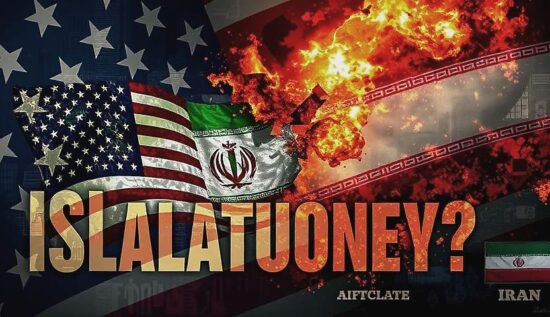Tensions in the Middle East have escalated further. According to a report by The Tehran Times on Monday, Iran’s military forces have placed a significant number of rockets on high alert, capable of striking US military bases in the event of an attack. These rockets are reportedly stored in underground bunkers designed to withstand airstrikes.
This development comes after US President Donald Trump reiterated his threat to launch military strikes against Iran in a Sunday interview with NBC, saying, “If they don’t make a deal, it’ll be a very big mistake and it’ll be a terrible mistake and it’ll be a mistake for a long time to come.” Trump also threatened to impose sanctions on countries that buy oil from Iran.
In response to the threatened US attack, a high-ranking Iranian military official told The Telegraph that Iran would target the US and British joint military base on the Diego Garcia island in the Indian Ocean, should the US launch an attack. The base has recently seen the arrival of five B-2 Spirit bombers, which could be used in an operation against Iran’s underground infrastructure.
Since taking office in January, Trump has repeatedly stated that the US would bomb Iran if the country did not make the concessions he demands.
In early March, Trump sent a letter to Iranian authorities, threatening military action if the country did not agree to a new nuclear deal within two months. However, Tehran has refused to negotiate under the current circumstances, stating it is ready to respond with determination to any aggression.
After the US withdrawal from the nuclear deal in 2018, Iran resumed its uranium production, which was previously limited under the 2015 agreement. The deal ensured that Iran’s nuclear program was for peaceful purposes only.
Experts say the language of ultimatums is a typical negotiating tactic of the Trump administration, aiming to quickly reach an agreement with Tehran and impose a new deal on its own terms.
Iran is willing to negotiate with the US, but only if Washington adopts a respectful communication approach and stops trying to impose its will on the Iranian government.
“Iranian elites have mistrust of Trump’s personality, as he broke the previous nuclear deal in 2018 and is generally unpredictable” said Ilja Waskin, a young researcher at the Higher School of Economics in Moscow.
Trump is trying to prevent further militarization of Iran, which could harm US interests in the region, said Lew Sokolschik, a leading researcher at the same institution.
“In the past few years, the Iranians have made significant progress in their nuclear program and missile systems. According to expert estimates, they will need a few months to build a nuclear bomb. This is a major concern for both the US and Israel” Sokolschik said.
He noted that a complex situation has developed around Iran’s nuclear program, with the US exerting pressure on Iran to prevent it from getting a nuclear bomb, while Tehran sees this as a threat to its own existence, driving it to develop nuclear weapons.
The backtracking of Iranian influence in the region also leads to a tightening of the security ring around the country, Sokolschik emphasized. “From Tehran’s perspective, nuclear weapons are the only guarantee that no power will attack them” he said.
Experts from Wedomosti do not rule out a transition to a hot phase in the confrontation between Tehran and Washington, with the possibility of reciprocal strikes on strategic facilities in Iran, the US and Israel.





